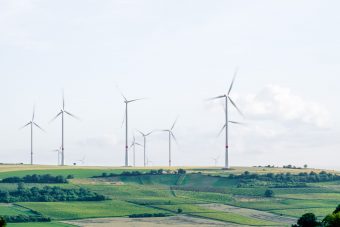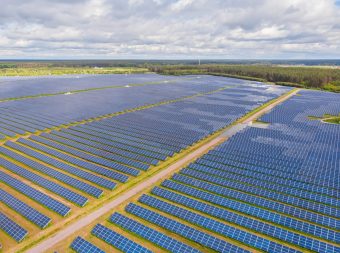
The energy crisis showed us how vulnerable we are and how fragile our energy safety is. The war in Ukraine, which caused an unprecedented increase in electricity prices, exposed all the flaws in the electricity pricing system. It forced the entire continent to develop new plans to quickly energy independence so that a similar crisis would never happen to us again. We spoke with Maja Pokrovac, director of RES Croatia (OIE Hrvatska), about what Croatia is doing to overcome the current situation and how much attention the country pays to renewable energy sources.
What is Croatia doing to find a way out of the energy crisis?
In this crisis, Croatia fared better than many countries thanks to developed renewable energy projects, mostly hydroelectric power plants. However, due to the increase in electricity prices, the government of the Republic of Croatia, like other EU countries, implemented special measures such as capping the electricity and heat prices. Furthermore, it adopted measures for developing renewable energy sources, including the abolition of VAT on solar panels. At the same time, this crisis has once again confirmed that only energy produced within the state’s borders can ensure protection from external influences.
With the passing of the Electricity Market Act and the Renewable Energy Sources Act, deadlines for completing relevant administrative processes have been shortened. How does that look in practice, and how fast are renewable energy sources projects implemented?

Both acts brought big and significant changes to the RES sector in Croatia. Energy approval has become the first important step in project development, in contrast to the former system where energy approval consequently came after the project was almost developed. According to the new Electricity Market Act, this is a key tool of the Ministry of Economy and Sustainable Development in developing and managing the energy sector. The government introduced significant changes regarding the duration of the project development. Before, a project could last over 10 years, but now it is limited by law to a maximum of five. The time given to fulfil the prerequisites for connection to the power grid has been significantly shortened, and it has now been reduced to three months compared to last year because the requirements have been met for the Croatian transmission system operator to hand over part of its operations to external authorized and certified companies. Opportunities for innovative business formats have also been created. And for the first time, the law introduced electromobility as an important part of the country’s energy transition. After the law’s passing, key by-laws and other regulations were missing, so the development of renewable energy projects could not be implemented at the expected pace.
There were no known rules on the criteria for conducting a public tender for issuing energy permits, which investors often complained about. Thanks to transitional provisions of the new law, it was possible to complete all serious RES projects. Thus, 87 energy approvals with a total power of 2,132MW were issued. Their implementation should begin soon, which means that in the next five years, we will have 2,000MW of energy produced by new RES facilities.
IN FOCUS:
- INVESTING IN RENEWABLE ENERGY POWER PLANTS
- WHY SHOULD WE ALL USE SOLAR ENERGY
- SIGNIFICANCE AND APPLICATION OF ESG PRINCIPLES IN THE REAL ESTATE SECTOR
What is our region’s position in the RES segment compared to the rest of Europe?

Oleksandr Ryzhkov)
In terms of the region, it is often associated with great potential. Solar has the strongest potential because it does not depend on location, and each location has insolation far greater than any country in northwest Europe. Indeed, this potential is huge and can put the entire region on the map of those countries which achieved energy independence with the help of renewable energy sources and can also export electricity.
Each country in the region is better than the other in some respects, but we all need administrative obstacles to be eliminated to accelerate the development of RES projects. We have recently published an Action Plan for the Uptake of Offshore Renewable Energy Sources in Croatia, which clearly shows that we have the potential to develop as many as 25GW od offshore wind farms. Our experts have calculated that with the development of 2,500MW of wind and 2,500MW of solar power plants, we could cover all electricity imports. However, the potential for the development of solar energy is significantly higher than that. SolarPower Europe believes Croatia can develop up to 7GW of solar projects by 2030. Croatia has abundant geothermal deposits, and the potential for developing around 1,000MW of geothermal projects has been estimated. We currently have only 10 MW installed. Biogas and biomass plants are also essential to us.
RES Croatia became part of the large European RE-Source platform dedicated to the development of PPA contracts in the European Union. At the same time, Croatia was also included in the PPA statistics for the first time. What changes do PPA contracts bring in Croatia?
Croatian companies sign PPA contracts and receive inquiries for concluding new contracts almost daily. Power purchase agreements (PPAs) are extremely important to the entire energy system and benefit everyone. Companies that are large electricity consumers sign long-term contracts with renewable energy producers on the purchase of electricity at pre agreed prices. It enables producers of energy from renewable sources to safely sell produced electricity and customers to supply green energy at an agreed price safely. This way, companies can more easily plan their annual expenses without contemplating whether a crisis would hit them.
Prepared by: Milica Radičević
Read the story in the new issue of the Energy portal Magazine RENEWABLE ENERGY SOURCES



